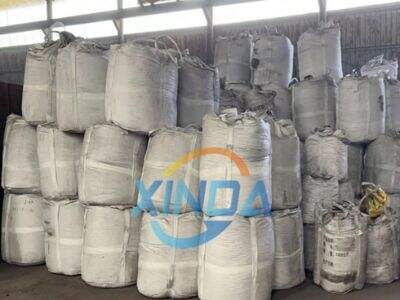It is critical for trade with the rest of East Asia. Silicon slag quality is very important, as it can influence the economic performance of these countries. Revamping trade with other countries entails exchanging goods and services. If the goods are high quality, that benefits everybody.
The East Asian Trade in Silicon Slag: The Quality Varies
China and East Asia trade in silicon slag with very high quality. Many people and companies, if the silicon slag is good, will be eager to purchase this, which can promote the development of trade. In a world where high-level silicon slag is needed, this can result in greater foreign trade and closer bilateral relations between countries. This can lead to issues, however, because if the silicon slag is substandard, other countries may not wish to purchase it. That can reduce trade, and the economies in these countries may not be as prosperous as they could be.
Silicon Slag Quality Effects On Economies
Silicon slag and silicon quality change economies in East Asia Silicon slag, if high quality, can lead to growth for countries via increased trade and job creation. More trade means more people find work, and more businesses can grow. But low-quality Silicon Slag Lump can damage the economy. Trade may also slow down and companies may suffer if they do not have good materials to work with. This means fewer jobs being available and it becomes more difficult for everyone to make a living.
Silicon Slag: high Content in Low-quality Silicon Slag in Trade
Silicon slag of poor quality can create significant problems for China’s trade with countries in East Asia. When Silicon Slag 60 has no proper quality standards, it could cause disputes on trade and sometimes losing of business opportunities. Companies may have to pay more to obtain the necessary materials, which can impact their profits. This can damage the broader economy. When trade ties become frayed, it can spill over into other areas, too, including investments and cooperation. This can threaten relationships between China and other East Asian nations, dampening trade and slowing down overall growth.
The Trade and Economic Benefits of Improved Silicon Slag Quality
Improving the quality of silicon slag can provide substantial benefits to trade and economic development in East Asia. Silicon slag with good quality will generate more needs, more partner relationships, and better economic cooperation between China and other East Asian countries. When countries play well with one another, there can be increased trade, jobs and a more robust economy for all the nations who are involved. Higher quality means that businesses can depend on their materials which can lead to innovation and advancement when it comes to their products. There will be new trading opportunities that benefit everyone by fostering new markets.
Silicon Slag Quality and Its Effects on Trade (Long-term)
The quality of silicon slag in the long run is all too crucial for China’s trade with East Asia. Good silicon slag quality will always enhance trade partnerships and strengthen their respective economies, as well as increasing China’s trust with other East Asian countries. Countries can trade successfully, as trust is essential—if countries trust each other, they cooperate and resolve problems that arise. But if the quality is low, it can also hurt these partnerships. This can slow down development and create issues for commerce. This will likely make it more challenging for countries to negotiate or collaborate on new efforts.
So in summary, silicon slag quality for trade and economic relationships in East Asia. Everyone involved must be working towards producing silicon slag of the highest quality to ensure trading is plyable and keeps the economy of the region inflating. Thus, by comprehending how silicon slag quality is been semblant in trade and tending to increase it, countries within China and East Asia can stand united for a prosperous economic future. Join Xinda, we work together, and ensure the best quality silicon slag for the good economic future of East Asia. The objective is to make sure that trade networks don't appear to have been manipulated since it can simply much reduce the price of the exchanges existing between the countries that make up these networks.
 EN
EN
 AR
AR
 NL
NL
 FR
FR
 DE
DE
 HI
HI
 IT
IT
 JA
JA
 KO
KO
 PT
PT
 RU
RU
 ES
ES
 TL
TL
 ID
ID
 SR
SR
 UK
UK
 VI
VI
 TH
TH
 TR
TR
 FA
FA
 MS
MS
 BE
BE
 AZ
AZ
 UR
UR
 BN
BN
 GU
GU
 JW
JW
 KM
KM
 LO
LO
 LA
LA
 NE
NE
 PA
PA
 TA
TA
 TE
TE
 MY
MY
 UZ
UZ
 KU
KU
 KY
KY
 LB
LB
 SD
SD






